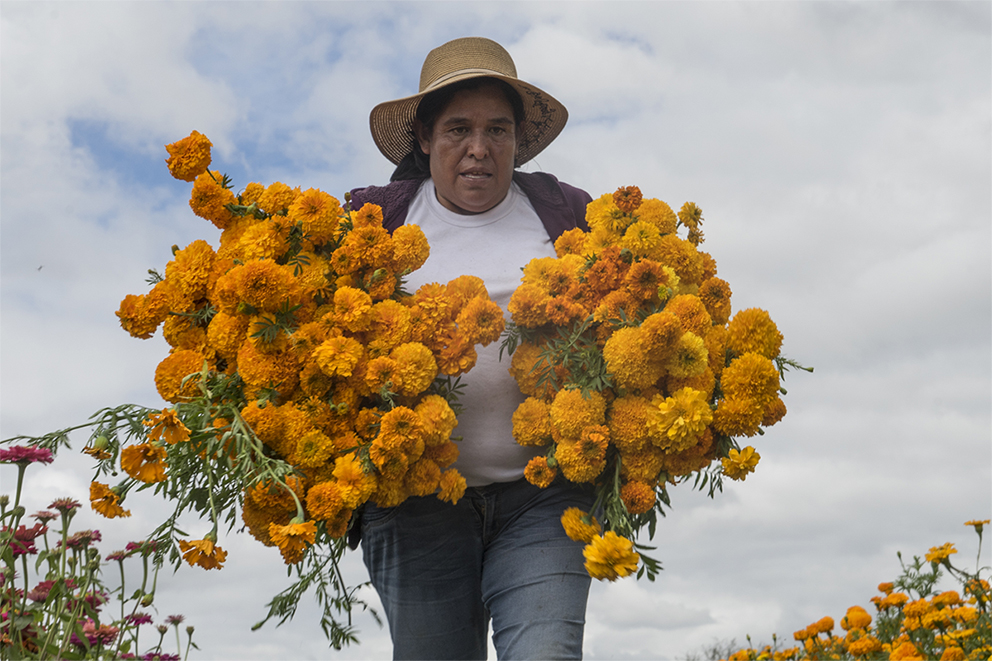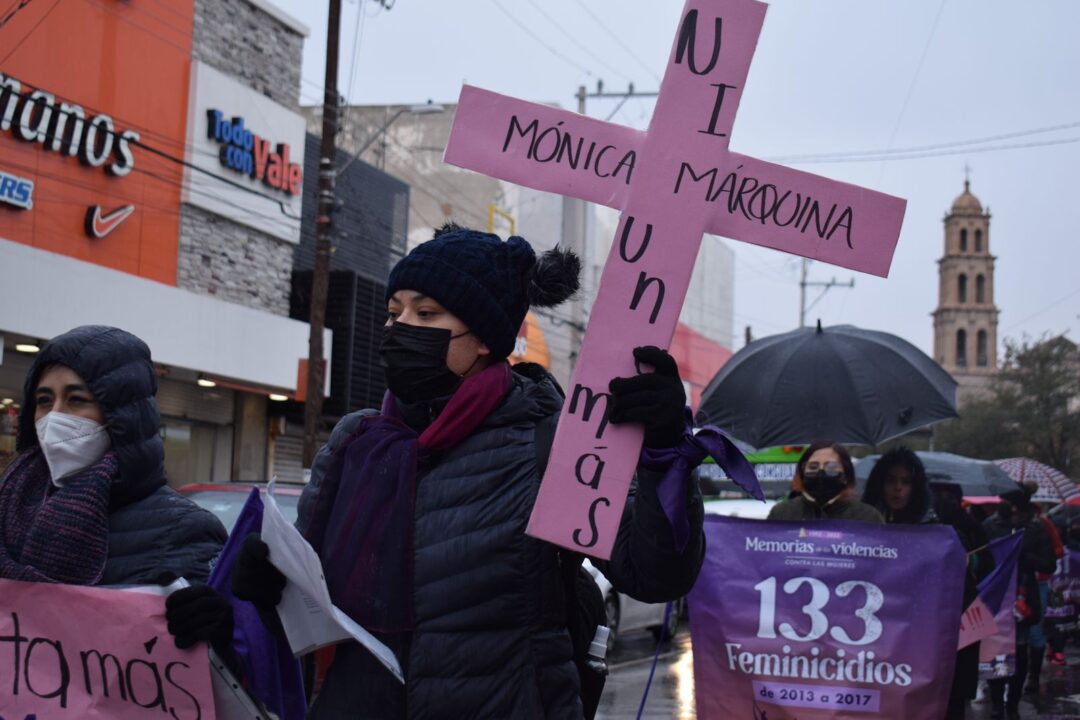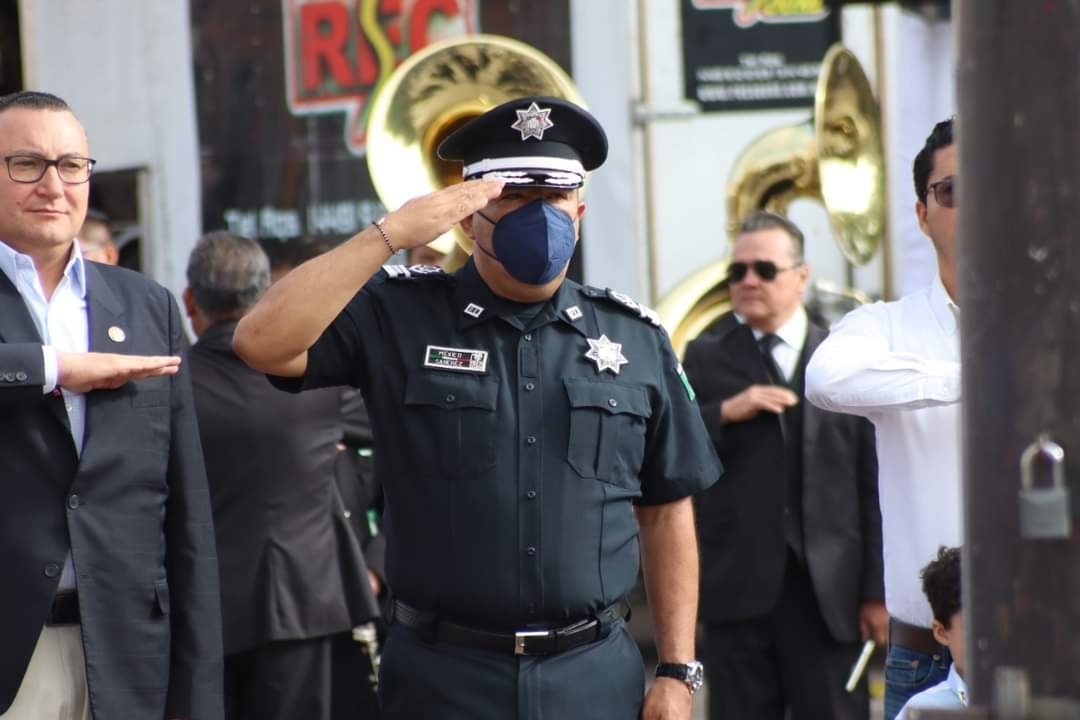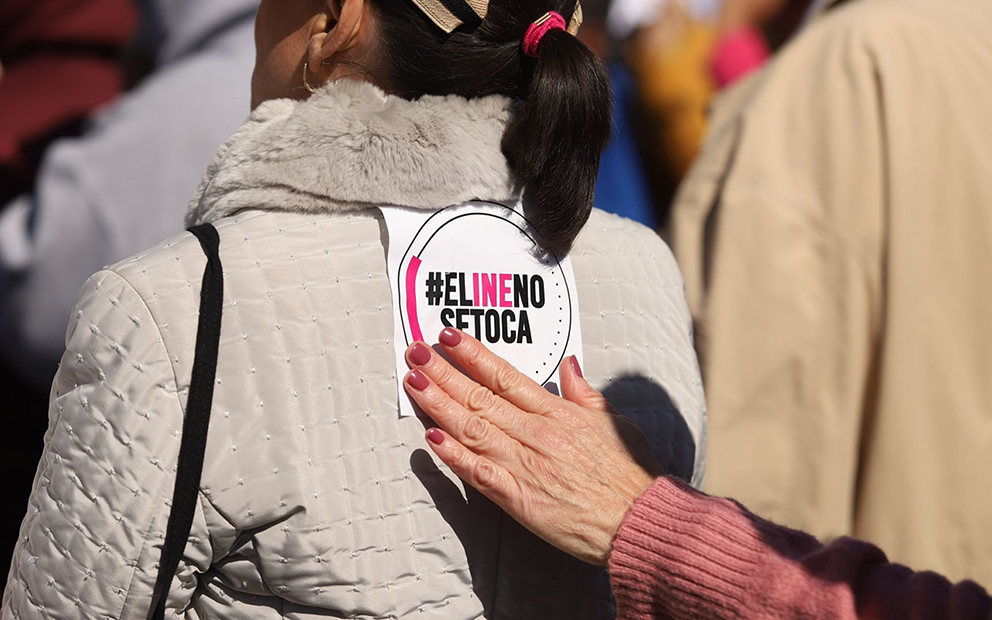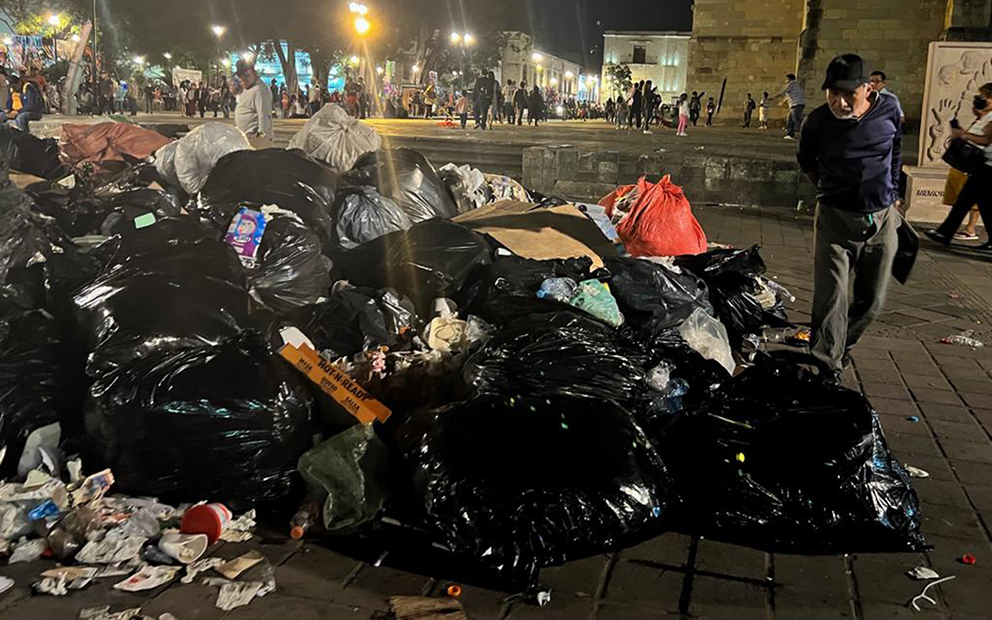Sexism, inexperience, climate change, pests, and other factors were major challenges that two women –mother and daughter, homemakers and small farmers– had to face in order to sow cempasúchil (marigold) and velvet flowers.
Text and Photos by Isabel Briseño, originally published on October 23, 2021.
Translated by Elysse DaVega for Pie de Página in English.
DOXEY, HIDALGO–The legend goes that inside of the Xicuco mountain, there are caves that attract the most ambitious, but those who enter never return.
Doña Geno is 50 years old, and she says that her elders told her the story of a group of musicians that had just returned from playing at a late-night party. A horseman crossed their path, and asked them to play at his hacienda with the promise of a great deal of money.
«They started up the mountain, and when they arrived at his mansion, the horseman told the violinist: ‘Everyone will play except for you.’ The violinist complied, but when he saw the party guests, he noticed that they didn’t have human feet, but instead those of different animals,» Doña Geno said.
It is said that the horseman didn’t want the violinist to participate because he didn’t want ‘the cross’ to interfere with his party.
The cross is the shape that is formed by the violin and its player while playing.When the sun rose, the musicians appeared mounted on the rocks of the hill, in the middle of the mezquites and the thorns: it had all been a dream.
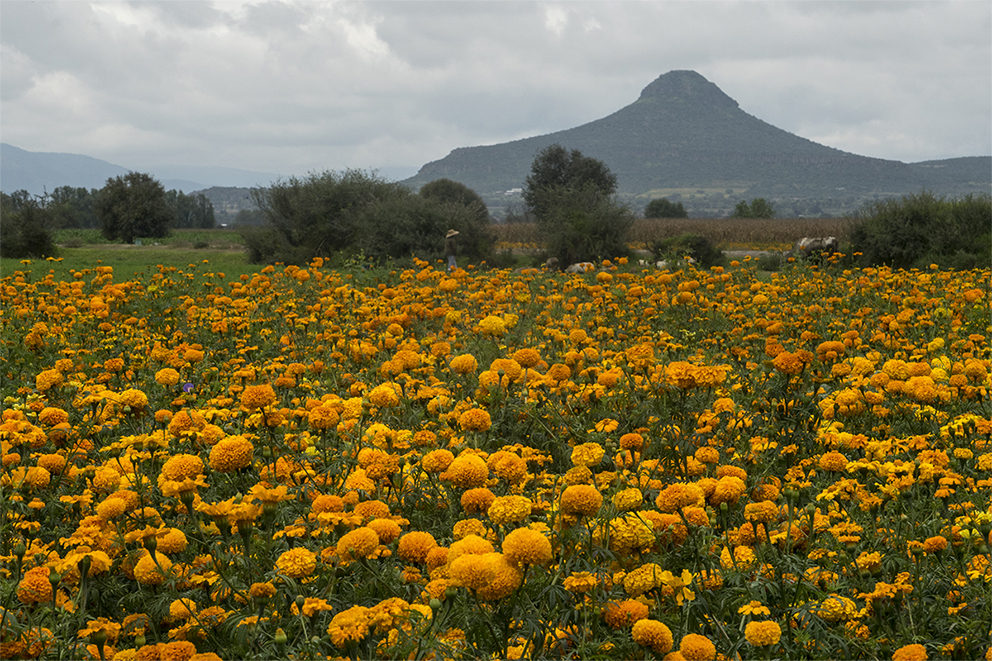
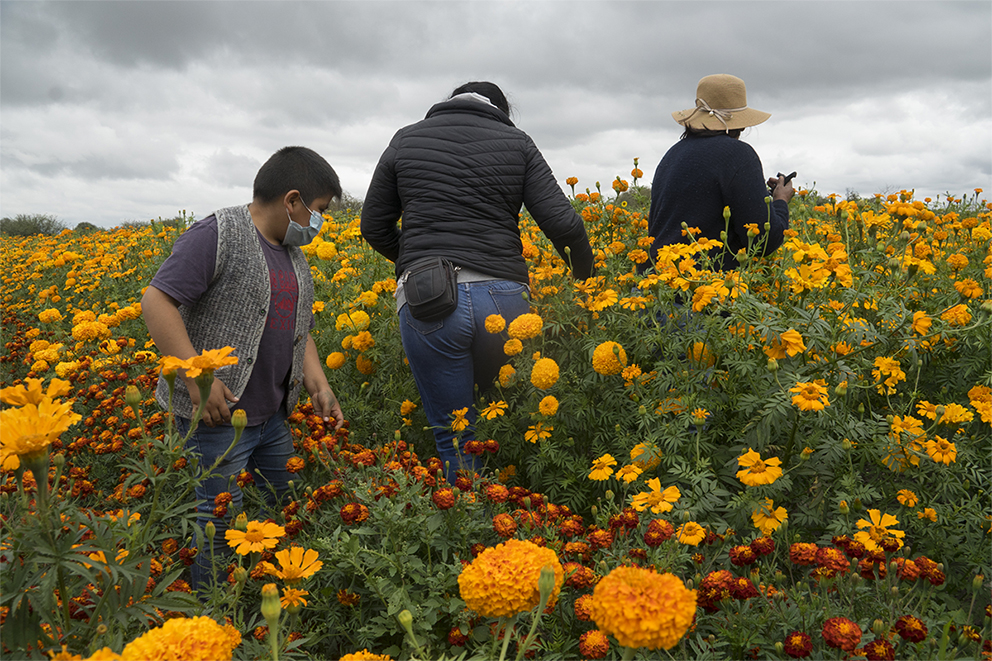
«I’ve been to the Xicuco mountain, but I’ve never seen the caves. I’d be an idiot to go in there,» Doña Geno said.
The charm of cempasúchil
In front of the hill that has planted a thorn of distrust among the residents of the municipality of Texontepec, Genoveva, who is 50, and her 25 year-old daughter Erika took a chance and planted flowers for the first time for Day of the Dead season.
In mid-June, they began to ask around and obtain the seeds from other growers that they hoped would flower.
It isn’t just the risk of spending time on a product that, due to unexpected weather changes, is not guaranteed.
There are also frosts, torrential rains, and heatwaves, least valued of all is the physical labor invested by these two women during their exhausting workdays.
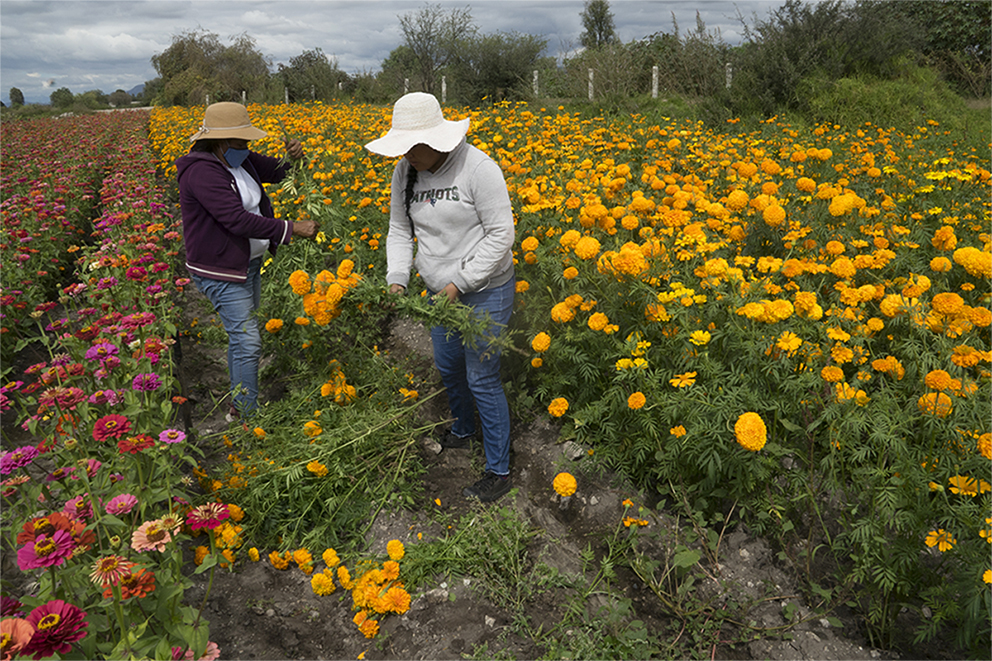
Without any prior knowledge, Erika pushed her mom to start planting. «We have to take a chance. If it works, great, and if not, it’ll have been an experience.»
Genoveva inherited the land from her father, who practically lived on his tractor, says his proud granddaughter.
They used to have a mediero, someone who sowed the land and split the profits between himself and Geno.
At other times of the year, Geno plants alfalfa, corn, peppers, squash, beans, oats, and cilantro, and then prepares the land for another season.
«We have to keep it moving, the land should never be left bare,» Geno says.
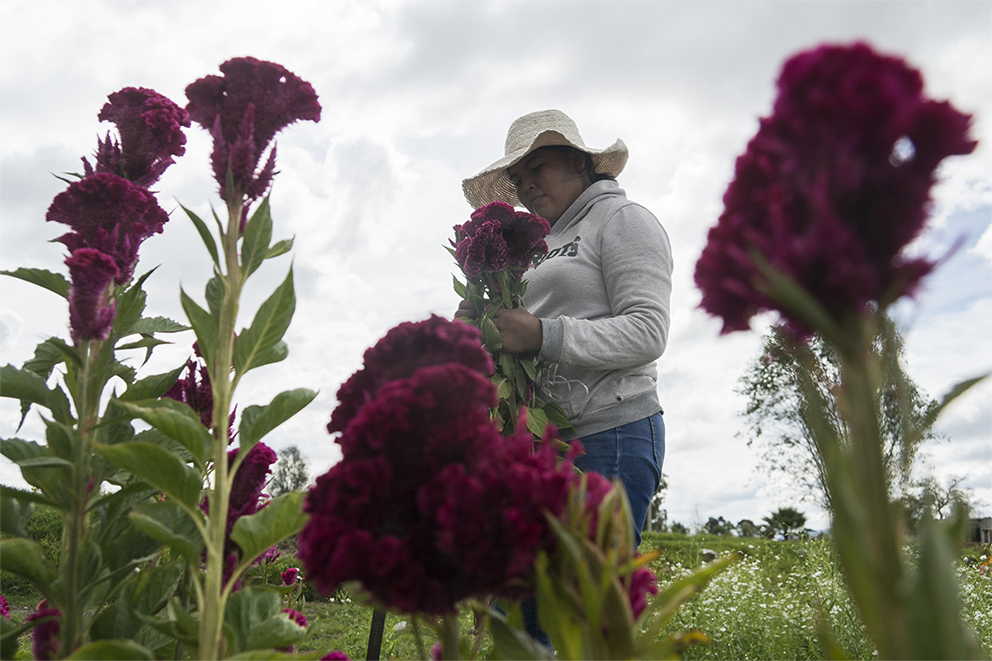
They began by planting cockscomb flowers, known elsewhere as velvet flowers.
This flower needs to be very carefully watered, they say, because it’s very delicate. Two weeks later the colorful buds appear, and finally, the flower blooms. They rake the grooves in the land with a metal hoe to deposit the seeds, which are later covered in a light layer of dirt with a stick.
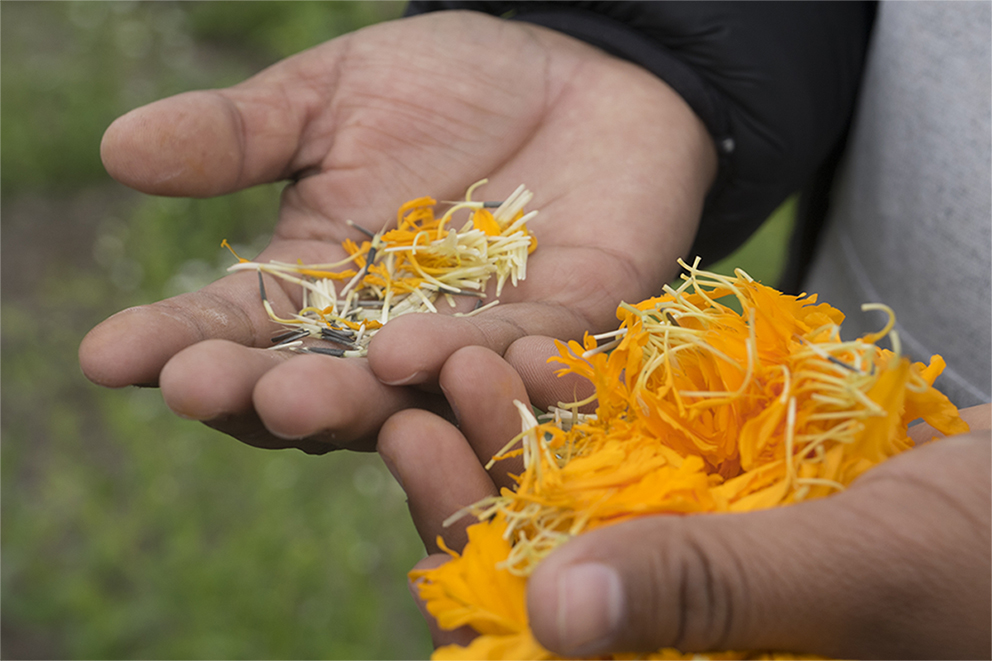
The process for cempasúchil, however, is different.
In a square plot of soft earth, they distribute the delicate, dry seeds and cover them with mesh. After five days of careful watering, they begin to sprout. They are left in the plot for 15 days to later be transplanted to the raked columns, which must be moist.
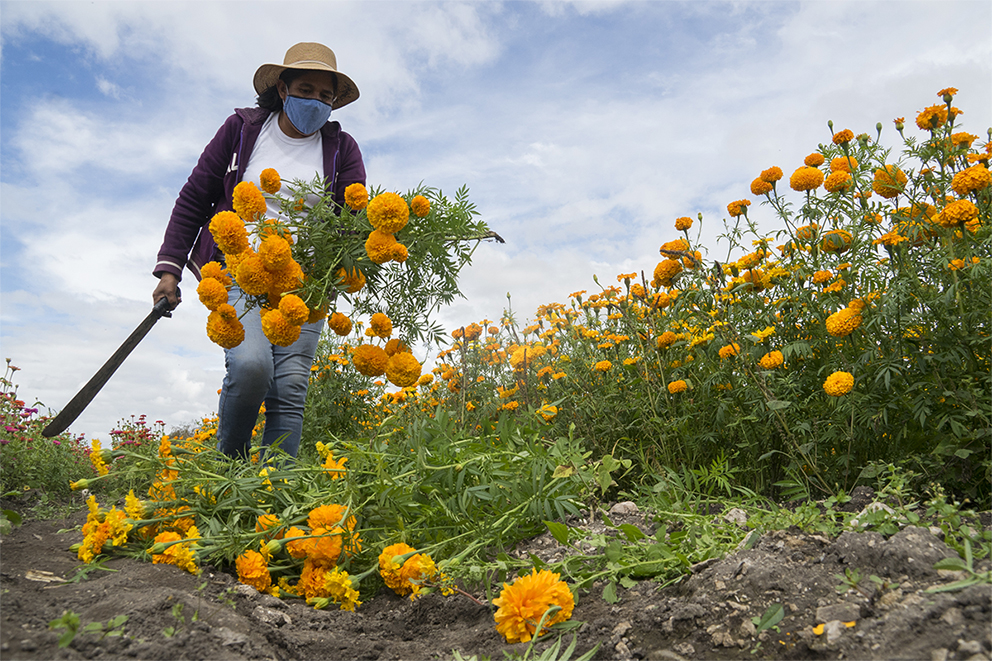
Geno warns that «it sounds easy, but aside from being very rigorous, it requires technique and a lot of care so that the plant doesn’t dry out.»
I feel very proud of my fields because the plants have bloomed. Everything has a balance; at first, they’re seeds that you watch grow from the land, and when they flower, it’s a joy.
Doña Genoveva
Harvesting isn’t just for men
Both women have experienced sexism (machismo) due to the fact that theirs is an activity typically done by men. They’ve been made fun of and faced a lack of support, and even jealousy.
When it was time to water, the other growers didn’t want to help them; they were told that it was too little land for them to spend time bringing them water. To further complicate the task of watering, they closed the irrigation floodgates.
However, Doña Geno didn’t just sit there with her arms crossed– she took it upon herself to open them.
«Geno, you know how to water, too?» she was mockingly asked by a man in boots, shovel in hand.
«Of course, I can too,» the strong woman replied, water up to her neck.
«It’s awful that machismo exists,» Erika says as she shares memories from those days.
The work of these great women has inspired other residents. A woman neighbor used them as an example when she asked her husband if they could take up planting the fragrant, colorful flower next year.
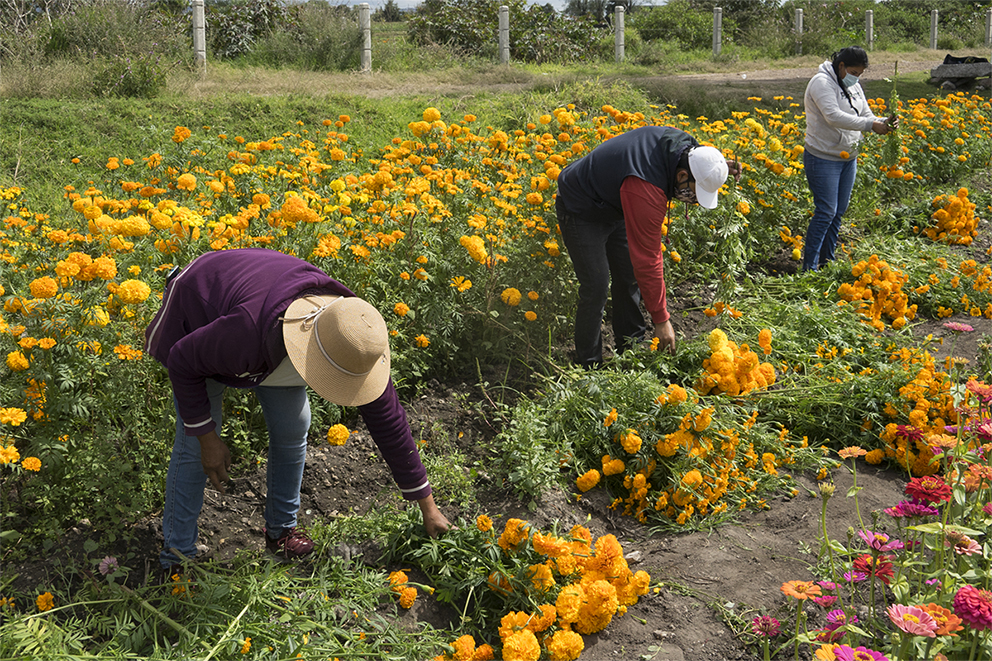
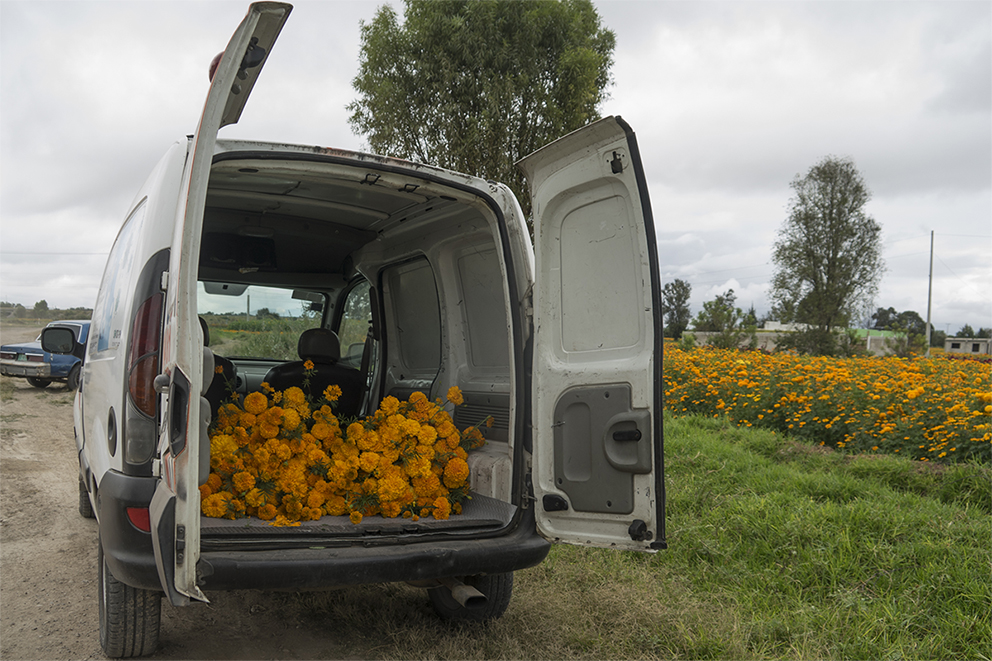
Selling and extractivism
Doxey is a flower growing town. Groups of flower growers negotiate the sale price so that it remains the same; even through the pandemic, the cost, which is decided either by the bunch or by column, is the same as last year.
Another long standing issue for flower growers is the search for an agricultural engineer to help them with specific matters to facilitate growing.
They’re looking for someone with knowledge of exact dates so that the crop doesn’t fall behind, recommendations to obtain the best seeds, and tips on using fertilizers that don’t harm the environment, because they currently fertilize with nitrogen.
What makes these beautiful fields so eye-catching are their colors: the orange and purple attract the attention of many visitors from Mexico City.
Tourists seeking the best shots come to pose on top of the flowers, but they don’t appreciate all of the work that’s behind them.
«There are some that come and ask permission to go in, but there are some that don’t even greet us. They go in, take their photos, and leave,» Geno says.Genoveva and her daughter don’t want cash or tips; they work from sunrise to sunset. The only thing they ask is for their work to be respected and paid fairly.
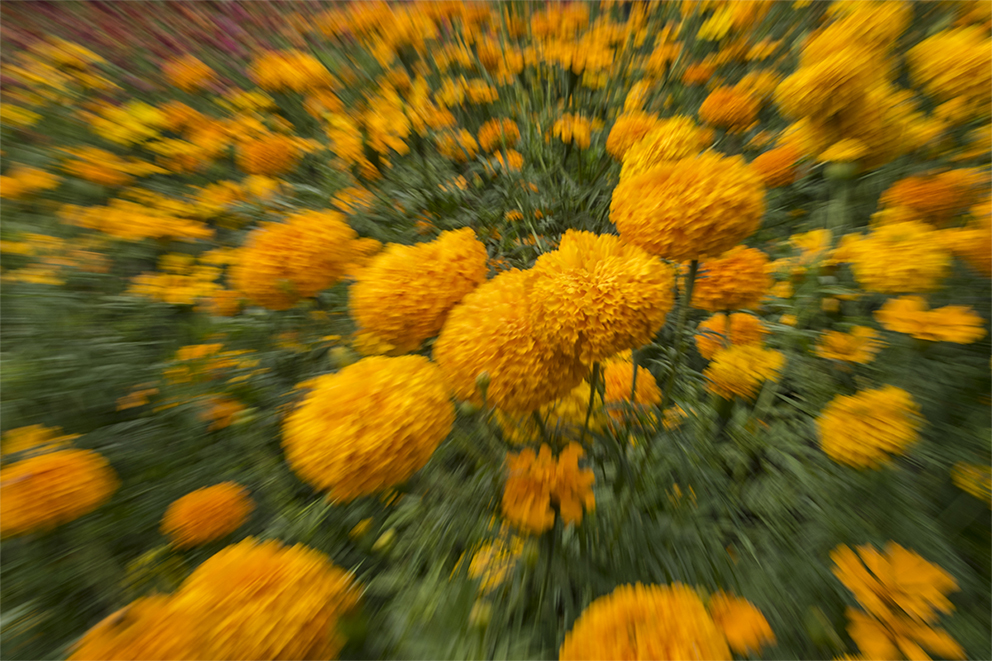
Isabel Briceño has never liked it when happy stories end, which is why she preserves them with her camara, and the painful stories she captures to help seek resolution.
Ayúdanos a sostener un periodismo ético y responsable, que sirva para construir mejores sociedades. Patrocina una historia y forma parte de nuestra comunidad.
Dona

